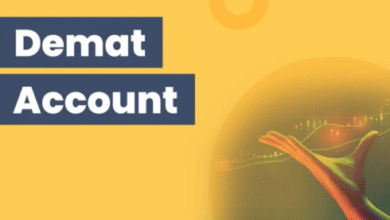Futures Trading Accounts vs. Demat Accounts: Understanding the Differences and Their Impact on the Indian Stock Market’s Future in 2030

Introduction
As the Indian stock market evolves, understanding various investment tools is crucial. Among the key components of modern trading are futures trading accounts and Demat accounts. Both play significant roles but serve different purposes. This blog delves into their differences, their current trends, and their anticipated impact on the market’s future, particularly by 2030.
What is a Futures Trading Account?
A futures trading account is designed for trading futures contracts, which are agreements to buy or sell an asset at a predetermined future date and price. These accounts allow investors to leverage their trades, which means they can control a large position with a relatively small amount of capital. Futures trading is popular among those seeking to hedge against price fluctuations or speculate on market movements. It involves higher risk due to leverage but offers opportunities for significant gains.
What is a Demat Account?
A Demat account, short for “dematerialized account,” is used to hold securities in electronic form. This account simplifies the process of buying, selling, and managing shares and other financial instruments. It eliminates the need for physical certificates and ensures faster and more secure transactions. Investors use Demat accounts to manage their stock portfolios efficiently, as they facilitate the seamless transfer and holding of securities.
Key Differences Between Futures Trading Accounts and Demat Accounts
Understanding what is the difference between Demat and trading accounts is essential for investors:
- Functionality: Futures trading accounts are used for trading derivatives, which involve contracts and leverage. In contrast, Demat accounts are used for holding and managing physical securities in an electronic format.
- Purpose: Futures accounts cater to speculative trading and hedging strategies, focusing on market movements and price predictions. Demat accounts, however, are primarily for the safe storage and management of securities.
- Types of Transactions: Futures trading involves margin trading and contract expirations, with potential high returns and risks. Demat accounts handle the purchase, holding, and sale of securities, without direct involvement in the speculative trading of derivatives.
Current Trends in Futures Trading and Demat Accounts
Futures Trading Trends: The rise in market volatility and investor interest in derivatives has led to an increase in futures trading. Advanced trading platforms and tools have made it easier for investors to engage in futures contracts, contributing to a more active futures market.
Demat Account Trends: There has been a significant surge in the number of Demat accounts opened, driven by increased individual participation in the stock market. Digitalization has streamlined the process, making it more accessible for retail investors to manage their portfolios online.
Impact of Futures Trading and Demat Accounts on the Indian Stock Market
Short-Term and Long-Term Effects: Futures trading can enhance market liquidity but also introduce volatility due to leveraged positions. On the other hand, Demat accounts improve market efficiency by reducing paperwork and speeding up transactions, contributing to a more transparent and secure trading environment.
Regulatory and Market Developments: Recent regulations have tightened the rules around futures trading to safeguard against excessive speculation. Meanwhile, advancements in Demat account services, including enhanced security features and integration with trading platforms, are setting new standards for investor protection.
Future Outlook for 2030
Predicted Market Trends: By 2030, futures trading is expected to become more sophisticated with the integration of AI and machine learning for predictive analytics. The growth in algorithmic trading could lead to more complex futures strategies and a broader range of derivatives.
Technological Innovations: Demat accounts will likely see further technological enhancements, such as blockchain integration for even greater security and efficiency. These advancements will cater to an increasingly digital and tech-savvy investor base.
Conclusion
As the Indian stock market progresses towards 2030, understanding the difference between futures trading accounts and Demat accounts will be crucial for strategic investment decisions. Enrich Money provides the best trading platform in India for beginners, offering a seamless and intuitive experience to help you navigate these accounts and prepare for future market trends. By staying informed and leveraging the right tools, investors can effectively position themselves for long-term success in an evolving market landscape.





